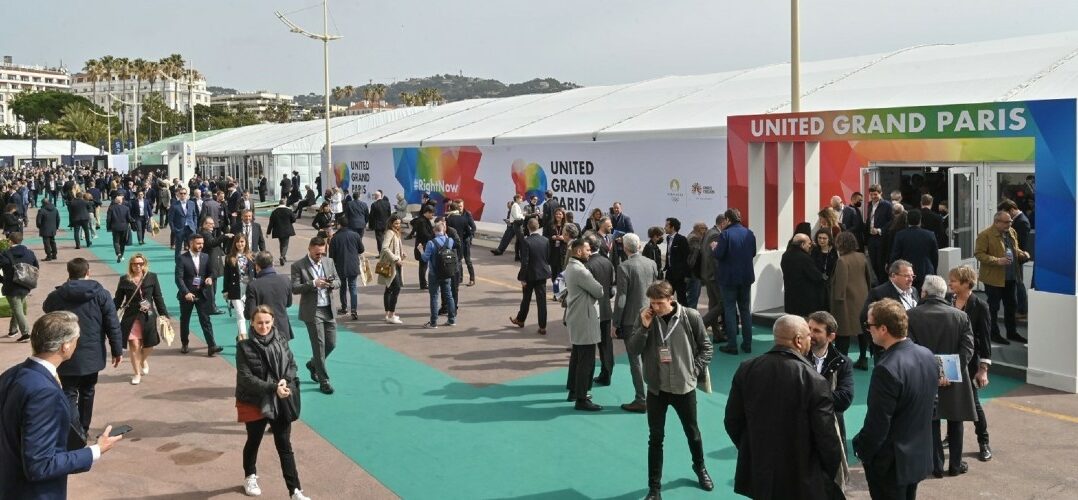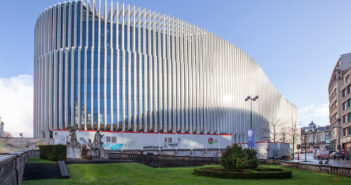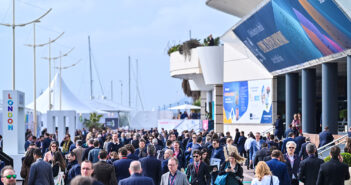Housing First: A second wind for housing
The first round of the discussion focused on how disruptive trends are shaping the housing sector was chaired by Leanne Tritton, ING Media, with panellists Arnaud Bekaert, Managing Director for Greater Paris Real Estate; Simon Mallinson of Real Capital; Adina David of Greystar and Alessandro Sparaco from Threestones Capital Management.

Adina David began the discussion by highlighting key demographical shifts that had not been seen before, such as the rise of the single person household, co-living, senior living and more. Adina also added that « We are looking at ways of changing what we are doing, with new technologies and by assessing the way people live and the changing in demographics. We are trying to not build the same flats over and over again but to adapt to the needs of the market. »
Arnaud Bekaert highlighted that « key elements for us building housing and also for the occupiers, is to reduce bills and to have consciousness of climate change and having a real impact on it. » Arnaud also mentioned that demand for new builds in second tier cities is on the rise. These are smaller cities that are well connected to big cities but where the quality of life is more peaceful.
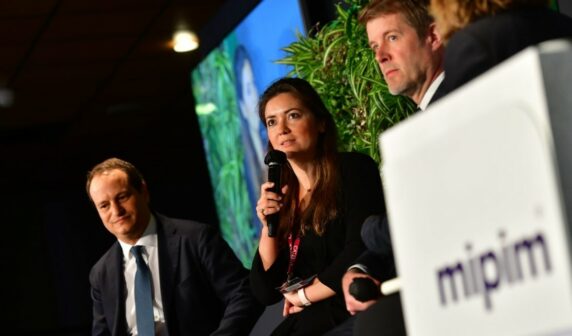
Rounding off the discussion, Adina pointed out that our housing needs to adapt to a population living longer and healthier lives. Alessandro pointed out that: « The emergence of asset classes is what the second wind of housing means for us. Now there is a strong demand for asset classes not co-related to the economic cycle, ones that reflect social change. »
Green is the New Black: Local initiatives to tackle global challenges
Sponsored by Ivanohe Cambridge, the final Green is the New Black key pillar session of MIPIM 2022 was hosted by William Murray, Partner at MurrayTwohig, with an expert panel – Carlo Ratti, director of MIT Senseable City Lab, Stéphane Villemain, VP Corporate Social Responsibility at Ivanhoé Cambridge, Carlos Moedas, Mayor of Lisbon and Estelle Monod, Senior VP at Schneider Electric.
Beginning the discussion, Estelle Monod of Schneider Electric used key case studies to highlight how the company is leading the way on ESG. She stressed “We are extremely clear about what we want our assets to do. Being transparent about the outcomes of our buildings and how we wanted them to run on a daily basis is so important – outcome driven building design is key.”
It’s no longer a question of technology – we have the technology and we can make this financially beneficial now – Estelle Monod of Schneider Electric

Carlo Ratti, MIT Senseable City Lab drew attention to one “Important question we are having at MIPIM this year; how can we innovate faster?”
Finally, people are thinking that ‘business as usual’ is not an option anymore – Carlo Ratti, MIT Senseable City Lab
Mayor of Lisbon, Carlos Moedas focused on cities as the platforms of now; “They are the platforms which can explain to people what needs to happen. When you change the lighting on the street to LED and tell people it will save 80% energy, they understand that.”
On how change is made: “My role is to transform the language of the macro to the language of the people – to close the gap between the top down and the bottom up. People today, in this digital world, want to participate in decisions.”
He later expanded on this point, saying “The digital world has changed the way politics works, and most politicians have not understood that yet.”
The discussion went more deeply into politics, democracy and their role in causing change, with moderator William Murray querying whether “Democracy is capable of resolving the problems around climate change… Maybe 20th century democracy isn’t but 21st century democracy is?”
As a final call to action, Stéphane Villemain, Ivanhoé Cambridge urged the audience to “Clearly state [ESG] ambitions, in concrete terms and bring them to the discussions early.”
Real estate, much more than an asset: Financing climate action
This panel discussion explored the urgency for all actors to invest in concrete climate actions. The panellists discussed relevant tools for the real estate industry to accelerate the fight against climate change. The session was chaired by Hannah Vanstone, Senior Associate Director – Legal at the Loan Market Association. The panel represented experts from academia, local authorities and investment. Akim Daouda, Chief Investment Officer at the Sovereign Wealth Fund of the Gabonese Republic, Prof. Dr. Sven Bienert, Head of the IRE|BS Competence Center of Sustainable Real Estate at the University of Regensburg, and Christophe Ferrari, Président of Grenoble-Alpes Métropole.
Christophe Ferrari gave examples how his city is investing in climate finance. He explained that the temperature increase in Grenoble is rising twice as rapidly as in the rest of Europe. As a result, Grenoble made the decision to drastically reduce energy consumption. The city provided subsidies to help citizens and companies to renew buildings and increase e-mobility. Ferrari says: “Local authorities have responsibility and create mechanisms of help the population to change their way of living. But they can’t do it all alone. They need the support of the state und the private sector.” However, he adds: “Most importantly, there needs to be a change in how people think. You need to embed a culture of transition.”
Prof. Sven Bienert, International Real Estate Business School, started by stating that the urgency of the topic was displayed by many government initiatives which remained a priority during Covid. “We are still on track for 2.7 degree increase not 1.5. Governments need to deliver. Governments all around globe are still pushing the carbon agenda despite the COVID crisis. We need to act now, there is no time to lose.” On the role of data, he said that in the 1990s, sustainability was vaguely defined and difficult to measure. He says that this is changing now. Large technology companies are supporting the ESG agenda and providing data.
If we fail net zero it will not be because of the lack of data, but because we did not try hard enough to reach it – Prof. Sven Bienert, International Real Estate Business School
He adds: “Data quality is a big issue. We need certified data by third parties and we also need to consider other greenhouse gases apart from CO2. We need to start tracking these too.”
Akim Daouda, Chief Investment Officer at the Sovereign Wealth Fund of the Gabonese Republic, says that we need to find innovative finance tools to reduce the climate emissions of the sector. “Climate finance is still concentrated on the Global North. Other regions cannot be left out. We need to develop more global frameworks to make sure climate finance is inclusive and provide clarity of opportunities in the Global South.” He says one of the big challenges is that “In developing countries we feel like we are standing between development goals and preserving the natural environment. We believe in Gabon that they are two faces of the same coin and all parts of a holistic approach towards economic development and protection of the environment.” As an example, the Kongo Basin represents 10% of all biodiversity and is at risk from climate change.
Cities for Citizens: The big debate
The final round of the big debate, Cities for Citizens kicked off this afternoon with chairman Jacopo Dettoni, editor at fDI /Financial Times, joined by Abdulrahman Al-Tawil, Deputy Minister of Real Estate Development Saudi Arabia; Khaled Abbas, Egypt Deputy Minister of Housing; Joanne Anderson, Mayor of the City of Liverpool and Christine Auclair, Head of Advocacy and Campaigns for UN-Habitat.
The debate started with Abdulrahman Al-Tawil, Deputy Minister of Real Estate Development, sharing his thoughts on the future of cities in Saudi Arabia:
The new concept for cities is the focus on the community, our strategy and plan is to create new real estate development areas to improve the quality of life of our citizens – Abdulrahman Al-Tawil, Deputy Minister of Real Estate Development
Khaled Abbas argued that “We have a big challenge in Egypt. We have been increasing our population by 2.5%. Our focus for 2030 is quality of life for all our citizens »
« Our big idea is to look at new generation neighbourhoods, to look at what resources we have available for people to have everything they need within a 20-minute radius of walking. »
Christines Auclair highlighted that in the last 10 years, 10 trillion dollars have been put into climate actions to achieve a net zero economy. She argued that COVID-19 was not the only pandemic, and that the crisis of social and racial inequalities was just as important.
Auclair added « We would like to focus on the ‘S’ of ESG to make our planet better and it’s about designing, building and managing cities for citizens. »
Real Estate Much More Than an Asset: Real Assets as an Investment Asset Class in a Covid World
What is the appeal of real assets for investors? Real estate is now considered as a financial asset, a source of return and diversification. As such, this discussion focused on the appealing features of real assets for investors: value volatility, liquidity and regulation. Courtney Fingar, Editor-in-chief at Investment Monitor chaired the conversation this afternoon. With her on the panel were Laurent Lavergne, Global Head of Asset Management & Development at AXA; Neil Slater, Global Head of Real Assets at Abrdn; Aleksandra Njagulj, Global Head of ESG for Real Estate at DWS and Aida Feriz, Executive Director at Wimmer Family Office.
The influence of inflation was heavily debated in the panel. Laurent Lavergne said: « One of the big themes is inflation. Real estate is giving protection in times of uncertainties. For the time being the investment intention remains very high despite the current geopolitical scene. »
Aida Feriz, Executive Director at Wimmer Family Office agreed: « Real estate as an asset was never more important than now with volatility in gas, oil and food prices. Real estate is the only asset that will preserve value. »
Moving on, Neil Slater, Global Head of Real Assets at Abrdn, shared his view on real asset investment « Aside from inflation and interest rates, the real asset class itself correlates to human behaviour. How we live, how we work, how we consume technology – this is what I am really interested in from an investment perspective. »
The panel also touched on how ESG criteria are being factored into the investment calculations. « The question of who is the tenant in our building is coming up more and more often in conversations. It is a challenging question for landlords from ESG point of view, » said Aleksandra Njagulj, Global Head of ESG for Real Estate at DWS. In terms of the ESG criteria which influence real assets, she said: “We need to accept that ESG criteria are changing constantly. We need to be ready for this and have policies and approaches which are flexible. ESG is constantly changing. It is just another aspect we need to adapt to.”
Gend’Her Networking Event
How can gender balance in the real estate industry boost creativity and economic growth?
The Gend’Her networking event, held in partnership with Business Immo, KPMG and CREW Network was held this afternoon and began with inspiring introductions from award-winning author Michelle King and Wendy Mann, CEO of CREW Network.
The audience for this event was divided into tables for discussion and collaboration with participants invited to sit at a table with an assigned theme relevant to them.
Housing First: A second wind for housing (Part 2)
This afternoon Leanne Tritton, Managing Director of ING Media moderated the second half of this housing focused panel with speakers Giovanni de Niederhäusern, Senior Vice President Architecture Division at Pininfarina; Colm Lauder, Head of Real Estate – Investment Banking at Goodbody; Daniele Russolilo, COO and Deputy CEO of Planet Smart City and Jack Renteria, Principal and Founder of Generation Global.
« We’ve seen a significant growth in the branded residency market in the last few years due to COVID. People are now more aware of the quality of their residences. Last year the market of branded residency grew 22%, which is significant » said Giovanni de Niederhäusern of Pininfarina.
For Jack Renteria and Generation Global, their business model is based on « Understanding who we want living there and basing everything that we do on that research, that data.”
Summing up why better-quality design is the way forward, Colm Lauder of Goodbody said “creating a sense of place and belonging simultaneously creates good returns.”
MIPIM Awards- Winners announced
The MIPIM Awards Ceremony 2022 took place in the Grand Auditorium at the Palais des Festival in a celebration of the most outstanding and accomplished projects, completed or yet to be built, around the world.
Prior to the ceremony, the judges had shortlisted 45 finalists whose projects represented ground-breaking innovation, architecture, environmental qualities, integration and impact on the communities in which they had been built.
Below is the list of this year’s winners. Congratulations to all.
BEST CULTURAL & SPORTS INFRASTRUCTURE
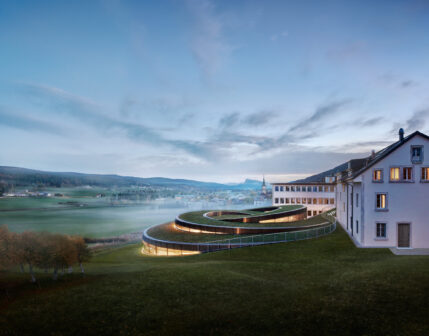
Musée Atelier Audemars Piguet
Le Brassus, Switzerland
Developer: Audemars Piguet
Architect: BIG-Bjarke Ingels Group
Other: CCHE Lausanne SA, Atelier Bruckner, HG Merz, Luchinger und Meyer, Muller Illien
BEST HEALTHCARE DEVELOPMENT
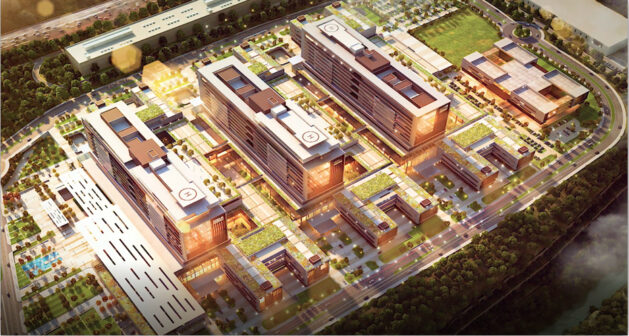
BAŞAKŞEHİR ÇAM VE SAKURA CITY HOSPITAL
Istanbul, Turkey
Developer: İstanbul PPP Sağlik Yatirim A.Ş, Renaissance Holding, Renaissance Healthcare Investment and Sojitz Healthcare
Architect: Perkins & Will (Concept)
Other: ARUP
BEST HOTEL & TOURISM RESORT
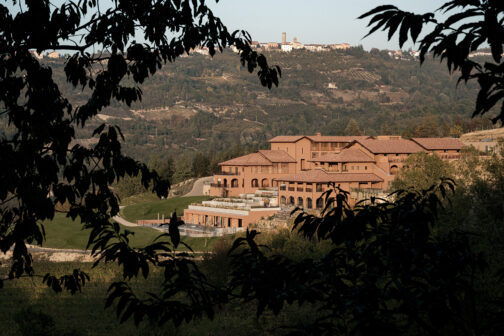
Casa di Langa
Cerreto Langhe CN, Italy
Developer: Gentile Ospitalità srl
Architect: GaS Studio con Parisotto Formenton Architetti
BEST INDUSTRIAL & LOGISTICS DEVELOPMENT
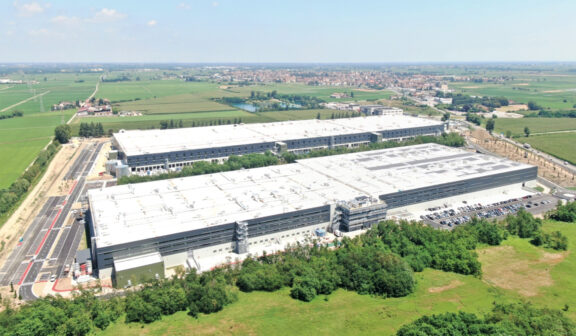
LCP Trecate
Trecate, Italy
Developer: Logistics Capital Partners
Architect: The Blossom Avenue Partners
BEST MIXED-USE DEVELOPMENT
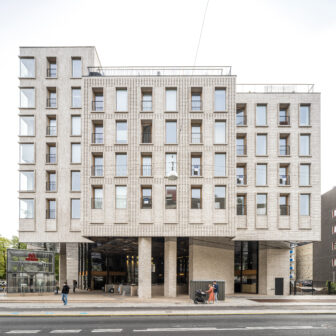
Frederiksberg Allé 41
Copenhagen, Denmark
Developer: Union Holding and NRE Denmark
Architect: Cobe
Other: Arne Elkjær, Wissenberg, and NRE Denmark
BEST OFFICE & BUSINESS DEVELOPMENT
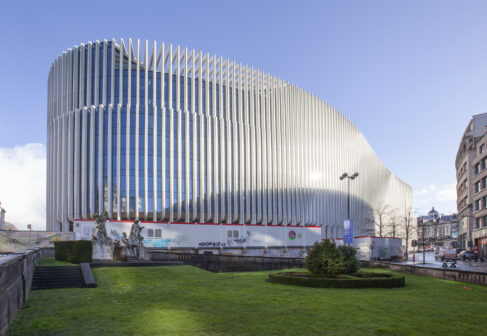
BNP Paribas Fortis HQ at Montagne du Parc
Brussels, Belgium
Developer: BNP Paribas Fortis
Architect: Baumschlager Eberle Architekten/ Styfhals/ Jaspers-Eyers Architects
BEST REFURBISHED BUILDING
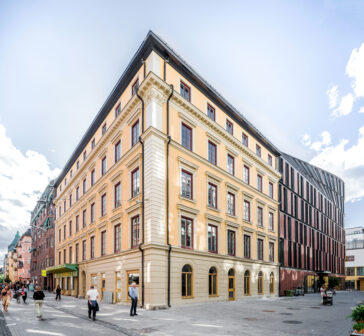
Astoriahuset and Nybrogatan 17
Stockholm, Sweden
Developer: Humlegården
Architect: 3XN
Other: Doos Architects, JOYN studio, WSP, and Tyréns
BEST RESIDENTIAL DEVELOPMENT
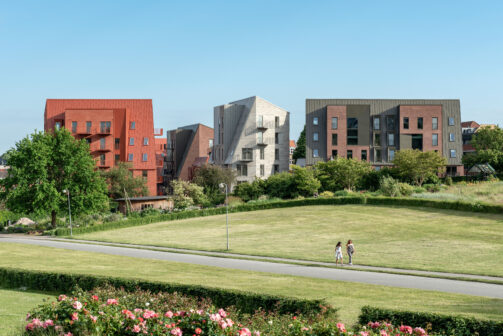
Boliger, Saltholmsgade, Æbeløgade
Æbeløen
Aarhus, Denmark
Developer: RAUNDAHL & MOESBY
Owner: PATRIZIA AG
Architect: CEBRA architecture
Other: ENGINEER: OLUF JØRGENSEN. LANDSCAPE ARCHITECT: MBYLAND
BEST SHOPPING CENTRE
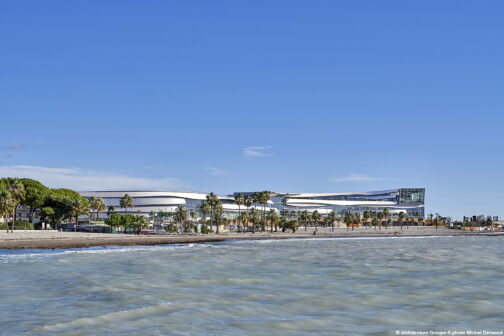
CAP 3000_ NICE (FXH)
CAP3000
Saint-Laurent-du-Var, France
Developer: Altarea
Architect: Groupe-6
Investors: Altarea
Other: Jouin Manku (Interior Design), Vinci Construction, Briand Construction Métallique
BEST URBAN PROJECT
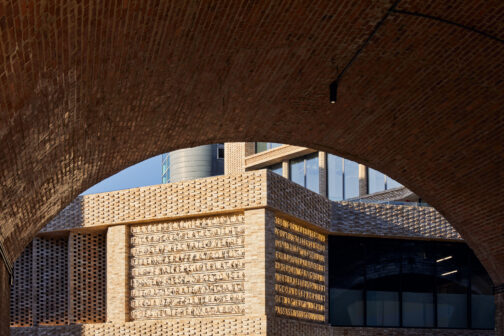
Borough Yards
London, United Kingdom
Developer: MARK
Architect: SPPARC
Other: Planning Consultant: Deloitte Real Estate / Archaeology Consultant: RPS Planning & Development / Townscape Consultant: Richard Coleman City Designer / Energy Consultant: Meinhardt (Uk) Ltd. / Etude / Mechanical + Electrical Engineers Meinhardt (Uk) Ltd. / Cost Consultant: Gleeds / Structural Engineer: Evolve / Transport Consultant: Vectos / Fire Engineering: The Fire Surgery Limited / Sunlight + Daylight: Point 2 Surveyors / Landscape Architect: Ares / Acoustic Consultant: Sandy Brown / Buildiing Control: Bureau Veritas / Servicing Management: Savills / Vectos / Strategy Advisor: Savills / Survey: Plowman Craven / External Lighting: Gia Equation / Network Rail Consultant: Central And Southern Real Estate
BEST FUTURA PROJECT
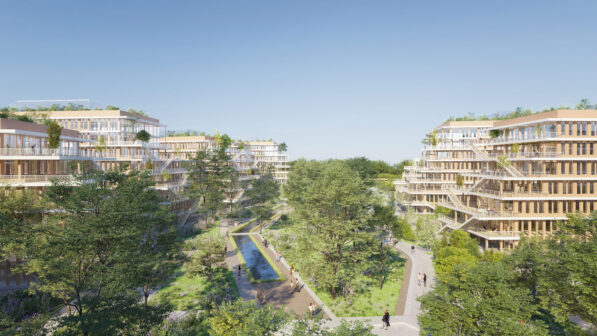
Arboretum
Nanterre, France
Developer: WO2
Architect: Leclercq Associés, DREAM, Nicolas Laisné Architectes, Hubert&Roy Architectes
BEST FUTURA MEGA PROJECT
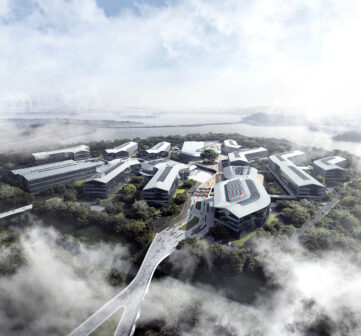
Hangzhou Alibaba DAMO Academy Nanhu Industry Park Project
Hangzhou, China
Developer: Jiachuan Technology (Hangzhou) Co., Ltd
Architect: Aedas
SPECIAL JURY AWARD
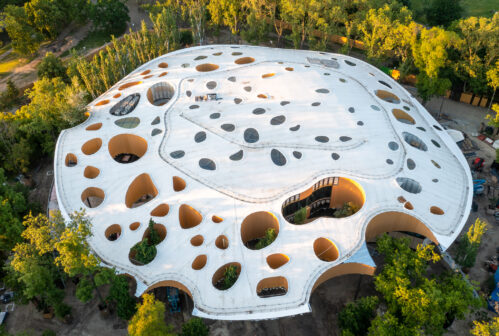
House of Music
Budapest, Hungary
Developer: Varosliget Zrt, Sou Fujimoto Architects
Architect: Sou Fujimoto
Other: Nagata Acoustics
